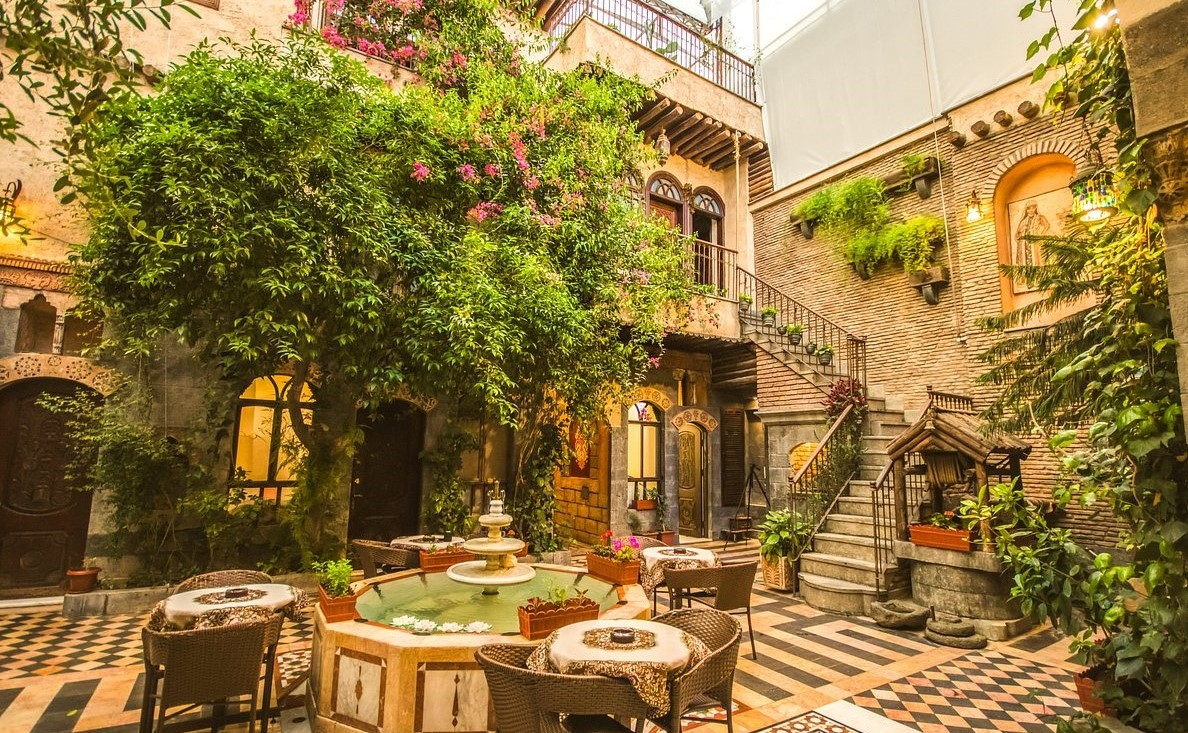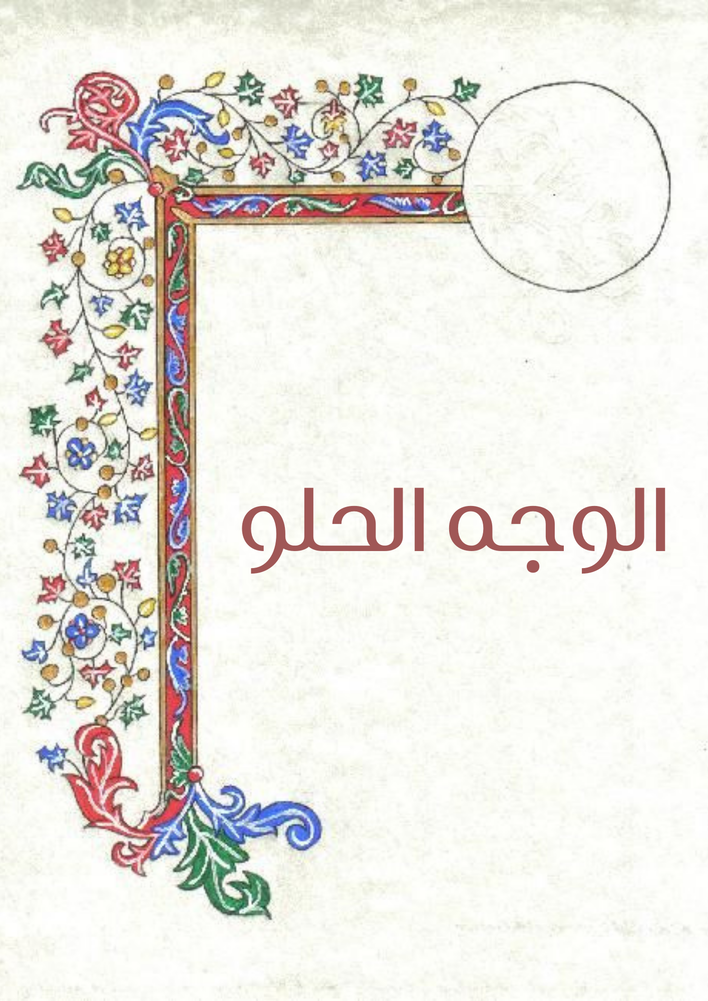Translation:
In Aleppo, people prefer coffee over tea. In gatherings and celebrations Arabic coffee, in mournings, bitter coffee. I couldn’t get myself to like coffee and maybe would take a sip so that my neighbour could read my cup. To know when love will come and take me away from here. As a bint (girl) from Aleppo that was my only hope to be able to leave home. During university, my friends from other regions, for them tea was the main of any gathering. Not like at home, we only drank it when someone’s stomach hurt and maybe we dipped a cracker in it. With my friends, every cup of tea was a phenomenon. Because I was drinking it outside of my home and I was myself. Not Dina, the daughter of someone but Dina in her true identity. Every cup of tea that was drunk was an assertion to my existence. With every cup of tea, were talks about the future and the hope of liberation. War took from us everything that we loved. And each one of us lives in a country. And the cup of tea became a memory of our talks but stayed a symbol of my existence. A phenomenon to not lose the identity and the resistance against all the systems that try to suppress this identity and show us as moments on the screen.
I asked my friend. Is it appropriate to dance to a resistance song? He replied, ma el dance is resistance!!!!
Time passes. Societies shift and evolve—especially in the aftermath of the last thirteen years of forced migration, displacement, and the scattering of Syrians across predominantly white societies. I’ve changed too. I’ve been working through layers of healing, and somewhere in that process, I’m finding myself able to love Arab men again.
In the diaspora, love becomes a lens. Through it, I’ve begun to see how my culture, my marginalized identity, and my internalized misogyny manifest in intimate relationships—often as pain. I’m specifically referring to the pain of loving people who are emotionally or physically unavailable, who mirror the violence of absence in both personal and political terms.
And yet, in this moment—this historical moment where our region is being dehumanized, where genocide unfolds before our eyes without consequence—I find myself making a deliberate choice: to love only Arab men. This has become urgent. It is no longer just personal. Loving people from my region feels like self-assertion, like resistance, like survival. It’s a way to reclaim strength in the face of systems that try to erase us.
When you witness the suspension of human rights—when you watch men who look like your father or brother being brutalized, tortured, and killed—loving them becomes sacred. It becomes necessary.
But how can I love without pain?
Specifically, how can I engage in romantic, binary love—towards Arab men—without recreating cycles of suffering?
To begin answering that, I have to name something difficult: in our region, love and women have always been complicated. Political and religious systems have long cast women as vessels of sacrifice—expected to deny themselves pleasure in service of others. Within this structure, the figure of the woman in love is almost always shaped through male fantasy: as desirable, submissive, and silent. This fantasy is not just patriarchal—it is colonial.
Colonialism mirrors and reinforces patriarchal codes. It imposes its language, ideals, and fantasies. It turns the white woman into the standard, the aspiration, the image against which Arab-speaking women are measured. What follows is a deep erosion of the self: a disowning of our bodies, our desires, our languages. What follows is rivalry between women, born of religious, colonial, and patriarchal conditioning, further distancing us from the possibility of love rooted in freedom.
When I ask how to love without pain, I’m asking how to break this inherited legacy.
In 2006, during the Seventh International Conference of the Arab Women Solidarity Association, Nawal El Saadawi was asked, “When a woman is her own enemy, what can we do?” To this, she answered:
“To fight against neocolonialism and fundamentalist movements, women must join hands, think and act together, and network. To mitigate or overcome their differences, women need awareness, a true consciousness, creativity, and inventiveness … We women and men at this conference are united in our opposition to the antagonism between East and West, between South and North, and among whites, coloreds, and blacks that we have inherited from colonial history. We reject the idea that there is no meeting ground for women and men … We believe that change is the essence of life, and that our creativity and social action will re-create our world.”
Her words remain a compass. They remind me that loving without pain is not a solitary pursuit—it’s a collective project. It requires us to disarm the internalized forces of erasure, to make room for new ways of relating, and to insist on tenderness that is not rooted in obedience, silence, or sacrifice.
Love can be resistance. But only if we learn to love ourselves—and each other—outside the fantasies we’ve inherited.
Over the past couple of years, I’ve only been going out with Arabic-speaking men. We’d usually meet somewhere for tea, and after a few dates, I began recording fragments of our conversations—pieces that stood out to me for one reason or another. With their consent, of course. These weren’t interviews or structured dialogues; I wasn’t trying to represent anything specific or address a particular issue. The conversations unfolded naturally.
At some point, I began wondering what to do with these recordings. How do you translate something so rooted in context, tone, and unspoken meaning? How much should be translated—and for whom?
I thought about Judith Butler’s reflections on language, recognition, and resistance, particularly in relation to what is considered intelligible. In dominant cultural frameworks, language is often only granted value when it can be translated—made accessible, rendered into English, and explained. But what happens when we choose not to translate?
The choice to leave Arabic poetry or speech untranslated—especially in performance, in public—can disrupt that assumption. It insists on its own integrity. It reminds me of Édouard Glissant’s idea of the right to opacity: the right not to be fully understood, not to be reduced or made transparent for the sake of comprehension.
So, I started experimenting with these recordings. I played with translation—sometimes letting it happen, sometimes withholding it, sometimes distorting it. I became curious about what emerges when something is allowed to remain partially unreadable.
This video is one outcome of that process.


